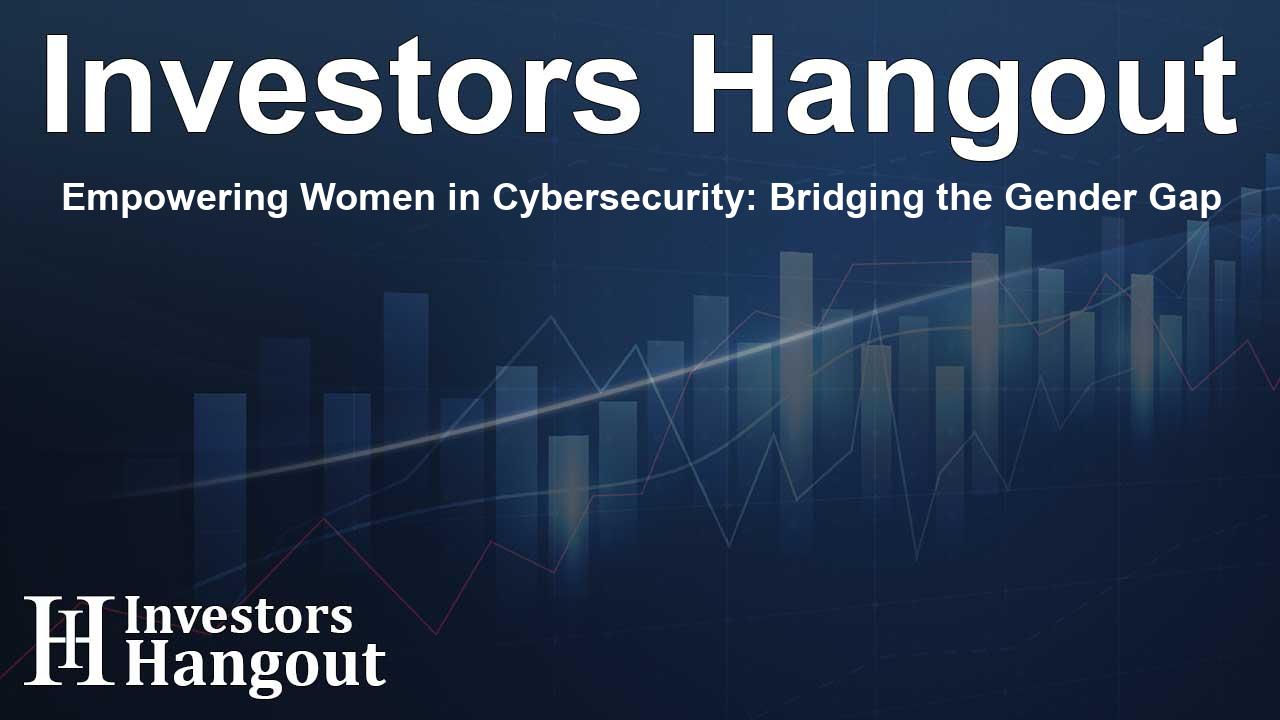Empowering Women in Cybersecurity: Bridging the Gender Gap

Empowering Women in Cybersecurity: Bridging the Gender Gap
In an increasingly digital world, the cybersecurity landscape holds incredible potential for growth. Recent research conducted by The Female Quotient in partnership with Deloitte sheds light on the critical challenges women face in entering this dynamic industry. With a focus on practical solutions, the study aims to inspire women to explore careers in cybersecurity.
The Current State of Cybersecurity
Cybersecurity is a booming field, expected to reach a staggering revenue of over US$650 billion by the end of the decade. Despite this impressive growth, the industry is plagued by a significant gender gap, with women making up only 25% of the workforce. This shortfall presents not only a missed opportunity for female professionals but also hinders innovation and diversity within the sector.
The Insights of the Research
The report highlights that half of the young women interested in cybersecurity feel ill-equipped with the necessary knowledge to enter the field. This perception contributes to a cycle that discourages many from pursuing opportunities in cybersecurity. Solutions proposed include challenging misconceptions about the requirements for entering the industry, such as the belief that technical skills are essential.
Challenges Faced by Women
A revealing aspect of the research is the mindset barriers that hinder women's involvement in cybersecurity. The findings indicate:
- 55% of women perceive cybersecurity as an intimidating industry.
- 51% believe they do not belong in this field.
- Many express doubts about fitting in and being themselves within the industry culture.
- Concerns arise that cybersecurity professionals may not take them seriously.
Women’s Unique Contributions
Despite these challenges, career opportunities in cybersecurity align well with women's aspirations. Women currently working in the field report that they find job security, learning opportunities, and a sense of purpose in their roles. The industry's mission to address complex challenges makes it a fulfilling career path. As Shelley Zalis, Founder and CEO of The Female Quotient, stated, engaging women in cybersecurity is vital for the sector's growth and success.
Strategies to Bridge the Gender Gap
To attract more women to the cybersecurity domain, it's crucial to normalize the conversation around its accessibility. Recruiters are encouraged to emphasize the exciting, purposeful nature of cybersecurity roles in a way that resonates with women. A significant majority of both working men and women recognize the cybersecurity industry as vital to societal safety, highlighting a shared vision that can drive interest among potential candidates.
Building a Supportive Environment
Organizations must focus on amplifying women's voices and ensuring representation at all levels, particularly in senior positions. The underrepresentation of women in high-ranking roles perpetuates industry biases and contributes to the gender gap. By providing mentorship and fostering inclusive environments, companies can attract and retain female talent, empowering them to thrive in cybersecurity.
New Initiatives and Campaigns
The collaboration between The Female Quotient and Deloitte extends beyond research. They are launching a broader campaign aimed at celebrating the achievements of women already succeeding in the cybersecurity arena. This initiative serves not only as an inspiration but also as a road map to guide other women toward similar success.
Frequently Asked Questions
What is the primary focus of the recent research by The Female Quotient and Deloitte?
The research aims to address the gender gap in cybersecurity by identifying challenges women face and proposing solutions to encourage their entry into the field.
Why is cybersecurity considered an essential industry?
Cybersecurity is vital for protecting digital information and infrastructures, underpinning trust and safety in the increasingly interconnected world.
What are some barriers women face in cybersecurity?
Many women perceive the industry as intimidating and feel there is not enough room for someone like them, causing reluctance to pursue a career in cybersecurity.
How can organizations help women enter cybersecurity?
Organizations can create inclusive hiring practices, promote mentorship programs, and highlight the purpose and security that come with careers in cybersecurity.
What is the significance of representation in cybersecurity?
Greater representation of women in cybersecurity promotes diversity, innovation, and a more comprehensive understanding of the security needs of different populations.
About Investors Hangout
Investors Hangout is a leading online stock forum for financial discussion and learning, offering a wide range of free tools and resources. It draws in traders of all levels, who exchange market knowledge, investigate trading tactics, and keep an eye on industry developments in real time. Featuring financial articles, stock message boards, quotes, charts, company profiles, and live news updates. Through cooperative learning and a wealth of informational resources, it helps users from novices creating their first portfolios to experts honing their techniques. Join Investors Hangout today: https://investorshangout.com/
Disclaimer: The content of this article is solely for general informational purposes only; it does not represent legal, financial, or investment advice. Investors Hangout does not offer financial advice; the author is not a licensed financial advisor. Consult a qualified advisor before making any financial or investment decisions based on this article. The author's interpretation of publicly available data shapes the opinions presented here; as a result, they should not be taken as advice to purchase, sell, or hold any securities mentioned or any other investments. The author does not guarantee the accuracy, completeness, or timeliness of any material, providing it "as is." Information and market conditions may change; past performance is not indicative of future outcomes. If any of the material offered here is inaccurate, please contact us for corrections.